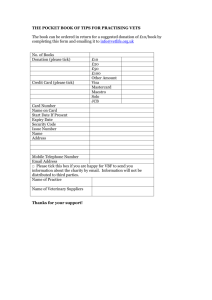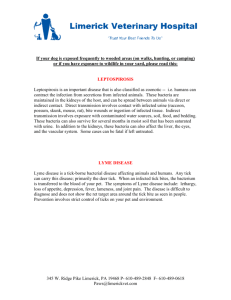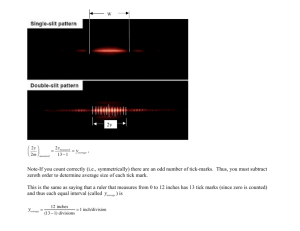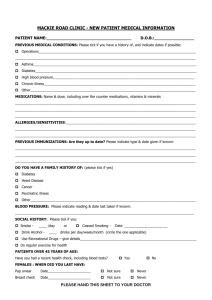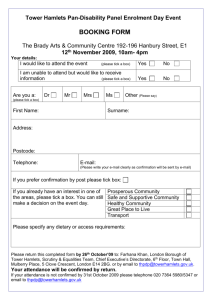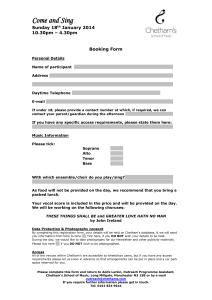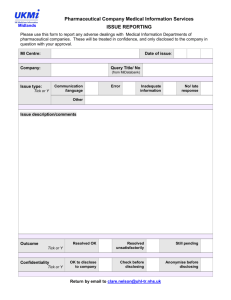INSTRUCTION SHEET: TICK BITE University of North Carolina Wilmington
advertisement
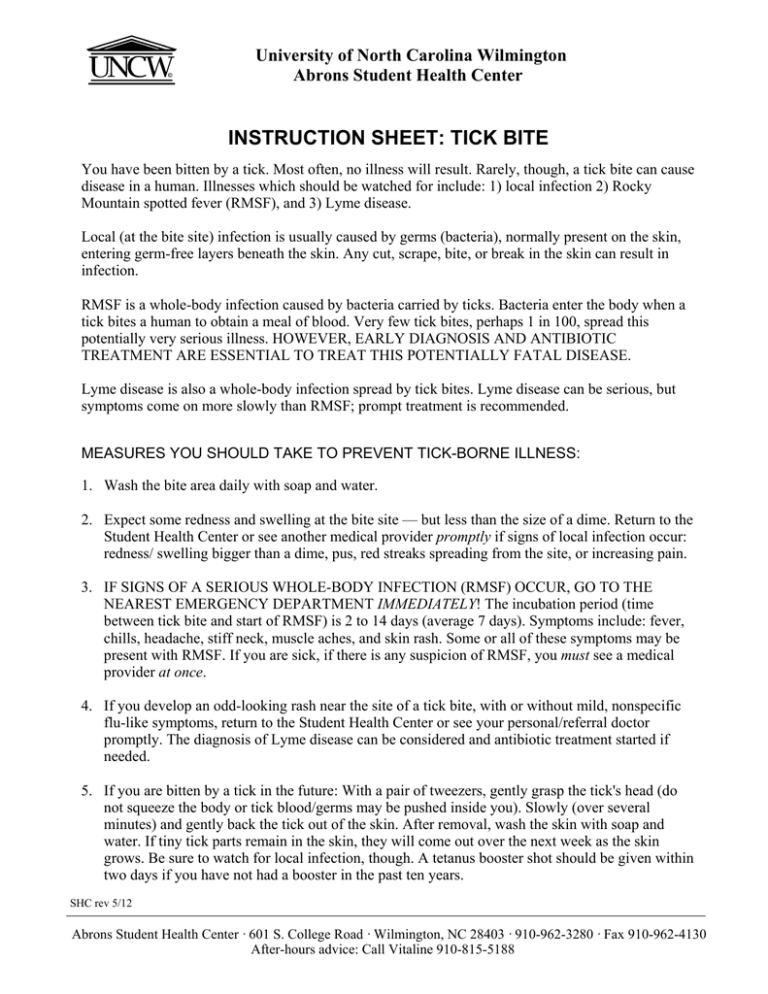
University of North Carolina Wilmington Abrons Student Health Center INSTRUCTION SHEET: TICK BITE You have been bitten by a tick. Most often, no illness will result. Rarely, though, a tick bite can cause disease in a human. Illnesses which should be watched for include: 1) local infection 2) Rocky Mountain spotted fever (RMSF), and 3) Lyme disease. Local (at the bite site) infection is usually caused by germs (bacteria), normally present on the skin, entering germ-free layers beneath the skin. Any cut, scrape, bite, or break in the skin can result in infection. RMSF is a whole-body infection caused by bacteria carried by ticks. Bacteria enter the body when a tick bites a human to obtain a meal of blood. Very few tick bites, perhaps 1 in 100, spread this potentially very serious illness. HOWEVER, EARLY DIAGNOSIS AND ANTIBIOTIC TREATMENT ARE ESSENTIAL TO TREAT THIS POTENTIALLY FATAL DISEASE. Lyme disease is also a whole-body infection spread by tick bites. Lyme disease can be serious, but symptoms come on more slowly than RMSF; prompt treatment is recommended. MEASURES YOU SHOULD TAKE TO PREVENT TICK-BORNE ILLNESS: 1. Wash the bite area daily with soap and water. 2. Expect some redness and swelling at the bite site — but less than the size of a dime. Return to the Student Health Center or see another medical provider promptly if signs of local infection occur: redness/ swelling bigger than a dime, pus, red streaks spreading from the site, or increasing pain. 3. IF SIGNS OF A SERIOUS WHOLE-BODY INFECTION (RMSF) OCCUR, GO TO THE NEAREST EMERGENCY DEPARTMENT IMMEDIATELY! The incubation period (time between tick bite and start of RMSF) is 2 to 14 days (average 7 days). Symptoms include: fever, chills, headache, stiff neck, muscle aches, and skin rash. Some or all of these symptoms may be present with RMSF. If you are sick, if there is any suspicion of RMSF, you must see a medical provider at once. 4. If you develop an odd-looking rash near the site of a tick bite, with or without mild, nonspecific flu-like symptoms, return to the Student Health Center or see your personal/referral doctor promptly. The diagnosis of Lyme disease can be considered and antibiotic treatment started if needed. 5. If you are bitten by a tick in the future: With a pair of tweezers, gently grasp the tick's head (do not squeeze the body or tick blood/germs may be pushed inside you). Slowly (over several minutes) and gently back the tick out of the skin. After removal, wash the skin with soap and water. If tiny tick parts remain in the skin, they will come out over the next week as the skin grows. Be sure to watch for local infection, though. A tetanus booster shot should be given within two days if you have not had a booster in the past ten years. SHC rev 5/12 Abrons Student Health Center · 601 S. College Road · Wilmington, NC 28403 · 910-962-3280 · Fax 910-962-4130 After-hours advice: Call Vitaline 910-815-5188
